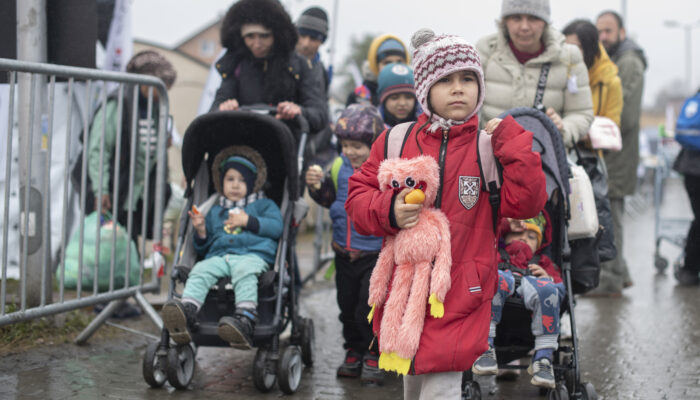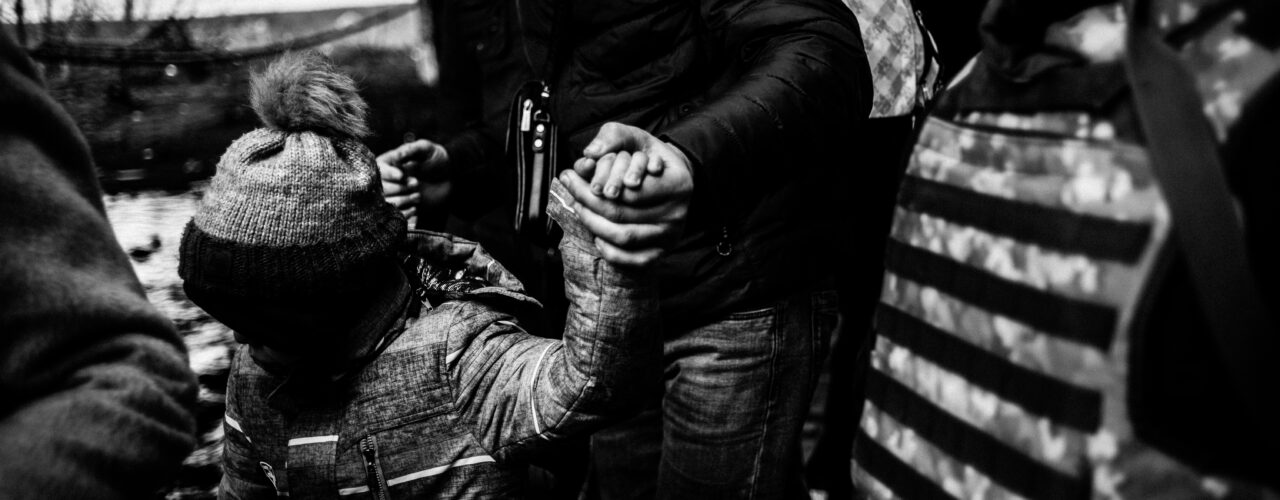Four questions about the crisis in Ukraine

We talked for a while with Tineke Ceelen, Director of Stichting Vluchteling. During the conversation we focused on the situation in Ukraine. Below you can read the four most interesting questions and the answers Tineke gave. How did this crisis changed the work, or will even change the sector? What can we learn? And how ‘should’ it change KUNO’s work?
How does the crisis in Ukraine -at Europe’s borders- change our worldview?
Humanitarian crises take place closer to our homes now. I think it signals that the times of stability and wealth that we have gotten used to, is coming to an end. The situation in Ukraine shows us that peace and security are fragile, and that we have taken them both for granted for a long time. All of a sudden, we all have to start thinking about big geopolitical events, instead of our own national issues.
And how do you think this impacts the humanitarian work?
We never considered Europe as our working terrain, but all of a sudden we have to. We also see that refugees from Ukraine are welcomed with open arms, whereas it took an immense effort to create solidarity for refugees fleeing Afghanistan, Congo, Venezuela or Syria. The fact that there is so much more attention and money for the Ukrainian crisis brings up all kinds of discussions we never had before. Questions like: Is there such a thing as too much money for a specific crisis? Can we justify the imbalance between funds raised for this crisis and the much smaller amounts we are able to spend on crises further away from Europe? Is there a way to use this horrible momentum to open people’s eyes and hearts for all those millions other refugees and IDP’s?
We see that refugees from Ukraine are welcomed with open arms, whereas it took an immense effort to create solidarity for refugees fleeing Afghanistan, Congo, Venezuela or Syria.

Do you think this has an effect on KUNO’s work?
I think KUNO can play an important role in reflecting on the big questions that arise from this shifting paradigm, for example what the consequences are for the humanitarian sector and how we feel about that. It is interesting to see that in Ukraine there are two types of aid coming together: professional organizations and dedicated, passionate, but mostly inexperienced volunteers. We have to find ways to coordinate that and make use of both strengths and we shouldn’t be afraid to question ourselves about whether it’s the best combination. It definitely has its advantages, but also some weaknesses. I remember seeing high heels or ice skates being available for refugees. But also, the volunteer organizations were already helping, while we were meeting, discussing, assessing. We deliver bad coffee and distasteful sandwiches, whereas volunteers from Genemuiden came with French fries and beef. As a sector, we owe it to ourselves to discuss the multiple dilemmas and KUNO is a great place to have that conversation and to exchange ideas.
What do you think of the time it took the Dutch humanitarian sector to get started in Ukraine?
On the one hand, it is understandable that if a crisis breaks out in an area where you are not yet present as an organization, it is difficult to quickly organize aid programs there. And working in an active conflict area brings risks that require careful consideration. Nevertheless, I would say that we could have been much faster. That is another topic to think about: could we have done better and if yes, how?
Could we have done better and if yes, how?
